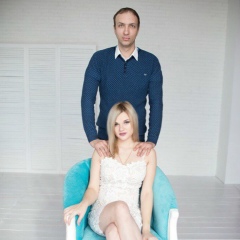https://facebook.com/298276320198577_2948393761853473
Дневник предпринимателя: как потерять 30% клиентов, но вырасти в 2,5 раза
По статистике Стива Бланка (автора методологии customer development), 92% стартапов проваливаются, а 9 из 10 гипотез приходится выбрасывать на свалку. Но из каждой неудачи можно извлечь полезные уроки, а еще они толкают к последующим изменениям. В истории сервиса по заказу уборки Qlean (как и у любого другого бизнеса) были не только рекорды по выручке и заказам, но и неудачные эксперименты. Об одном из них — запуске и последующем закрытии лоукост-тарифа «Эконом» — рассказывает директор по продукту компании Qlean Валерия Коваленко.
«Лоукостер» среди уборок
Зимой 2016 года мы вместе с IPSOS провели большое маркетинговое исследование и получили несколько интересных инсайтов. Например, обнаружилась очень низкая пенетрация услуги по заказу уборки в рынок: ее хоть раз пробовали только 10% жителей Москвы нашего целевого возраста (25-50 лет). Другой инсайт: потенциальные клиенты не могли назвать приемлемую стоимость клининга — им просто не с чем было сравнивать. А на интуитивном уровне они озвучивали сумму на 40% меньшую, чем в прайсе Qlean.
Мы поняли, что в формирование своего рынка фактически инвестируем только мы (в отличие от рынка такси, который развивают Uber, Yandex, Gett и другие компании с гигантским объемом инвестиций).
Конечно, наш бюджет не позволял бездумно тратить деньги на охватный маркетинг и привлекать клиентов за космические суммы. Плюс наша команда очень сфокусирована на «здоровье» бизнеса: цели всегда поставлены в маржинальности, мы жжём single-digit миллионов рублей в месяц и в некоторые месяцы показываем прибыль. В общем, бомбить рынок деньгами или спонсировать работу исполнителей постоянными комиссиями — это не про нас.
Чтобы проверить, насколько эластичен наш спрос по цене, мы придумали «лоукостер» среди уборок — похожий на предложение такси тариф «Эконом» (изначально он назывался Lite). Перед нами стояла задача – придумать, как дифференцировать его от нашего базового уборочного тарифа и при этом сократить операционные затраты на единицу «товара» (уборки). Чтобы сошлась юнит-экономика, мы сделали следующее:
разделили клинеров на две группы: топ-перформеры остались в базовом тарифе, а исполнителей со средним рейтингом перевели в «Эконом»;
выключили для клиентов «лоукостера» доступ к службе поддержки по телефону и оставили только чаты;
убрали из тарифа моющие средства и предложили клиенту либо купить их самостоятельно, либо приобрести у нас (доплатив 150 рублей);
сократили размеры бонусов (те, что мы выдаем при нарушении регламента в качестве извинений) – их использовали для покрытия жалоб от клиентов;
урезали затраты на привлечение (купоны и промокоды) и удержание (бонусы по подписке) клиентов;
немного сократили регламент и вынесли в дополнительные опции мытье посуды, душевой кабины, некоторых особенно нежных поверхностей и смену постельного белья;
сократили список дополнительных опций, убрав оттуда наиболее трудозатратные: мытье кухонных шкафчиков и глажку.
С учетом всех изменений, маржинальность эконом-тарифа должна была оказаться лишь на 5-7% ниже базового, — это нам подходило → https://incrussia.ru/understand/dnevnik-predprinimatelya-kak-poteryat-30-klientov-no-vyrasti-v-2-5-raza/
(Илья Рабченок)
По статистике Стива Бланка (автора методологии customer development), 92% стартапов проваливаются, а 9 из 10 гипотез приходится выбрасывать на свалку. Но из каждой неудачи можно...
Дневник предпринимателя: как потерять 30% клиентов, но вырасти в 2,5 раза
По статистике Стива Бланка (автора методологии customer development), 92% стартапов проваливаются, а 9 из 10 гипотез приходится выбрасывать на свалку. Но из каждой неудачи можно извлечь полезные уроки, а еще они толкают к последующим изменениям. В истории сервиса по заказу уборки Qlean (как и у любого другого бизнеса) были не только рекорды по выручке и заказам, но и неудачные эксперименты. Об одном из них — запуске и последующем закрытии лоукост-тарифа «Эконом» — рассказывает директор по продукту компании Qlean Валерия Коваленко.
«Лоукостер» среди уборок
Зимой 2016 года мы вместе с IPSOS провели большое маркетинговое исследование и получили несколько интересных инсайтов. Например, обнаружилась очень низкая пенетрация услуги по заказу уборки в рынок: ее хоть раз пробовали только 10% жителей Москвы нашего целевого возраста (25-50 лет). Другой инсайт: потенциальные клиенты не могли назвать приемлемую стоимость клининга — им просто не с чем было сравнивать. А на интуитивном уровне они озвучивали сумму на 40% меньшую, чем в прайсе Qlean.
Мы поняли, что в формирование своего рынка фактически инвестируем только мы (в отличие от рынка такси, который развивают Uber, Yandex, Gett и другие компании с гигантским объемом инвестиций).
Конечно, наш бюджет не позволял бездумно тратить деньги на охватный маркетинг и привлекать клиентов за космические суммы. Плюс наша команда очень сфокусирована на «здоровье» бизнеса: цели всегда поставлены в маржинальности, мы жжём single-digit миллионов рублей в месяц и в некоторые месяцы показываем прибыль. В общем, бомбить рынок деньгами или спонсировать работу исполнителей постоянными комиссиями — это не про нас.
Чтобы проверить, насколько эластичен наш спрос по цене, мы придумали «лоукостер» среди уборок — похожий на предложение такси тариф «Эконом» (изначально он назывался Lite). Перед нами стояла задача – придумать, как дифференцировать его от нашего базового уборочного тарифа и при этом сократить операционные затраты на единицу «товара» (уборки). Чтобы сошлась юнит-экономика, мы сделали следующее:
разделили клинеров на две группы: топ-перформеры остались в базовом тарифе, а исполнителей со средним рейтингом перевели в «Эконом»;
выключили для клиентов «лоукостера» доступ к службе поддержки по телефону и оставили только чаты;
убрали из тарифа моющие средства и предложили клиенту либо купить их самостоятельно, либо приобрести у нас (доплатив 150 рублей);
сократили размеры бонусов (те, что мы выдаем при нарушении регламента в качестве извинений) – их использовали для покрытия жалоб от клиентов;
урезали затраты на привлечение (купоны и промокоды) и удержание (бонусы по подписке) клиентов;
немного сократили регламент и вынесли в дополнительные опции мытье посуды, душевой кабины, некоторых особенно нежных поверхностей и смену постельного белья;
сократили список дополнительных опций, убрав оттуда наиболее трудозатратные: мытье кухонных шкафчиков и глажку.
С учетом всех изменений, маржинальность эконом-тарифа должна была оказаться лишь на 5-7% ниже базового, — это нам подходило → https://incrussia.ru/understand/dnevnik-predprinimatelya-kak-poteryat-30-klientov-no-vyrasti-v-2-5-raza/
(Илья Рабченок)
По статистике Стива Бланка (автора методологии customer development), 92% стартапов проваливаются, а 9 из 10 гипотез приходится выбрасывать на свалку. Но из каждой неудачи можно...
https://facebook.com/298276320198577_2948393761853473
Entrepreneur diary: how to lose 30% of customers, but grow 2.5 times
According to statistics from Steve Blank (author of the customer development methodology), 92% of startups fail, and 9 out of 10 hypotheses have to be dumped. But from each failure, useful lessons can be learned, and they also lead to subsequent changes. In the history of Qlean cleaning order service (like any other business), there were not only records for revenue and orders, but also unsuccessful experiments. One of them - the launch and subsequent closure of the low-cost tariff “Economy” - says Valery Kovalenko, product director at Qlean.
Lowcoster among cleaning services
In the winter of 2016, together with IPSOS, we conducted a large marketing research and received several interesting insights. For example, there was a very low penetration of cleaning services in the market: at least once only 10% of Moscow residents of our target age (25-50 years) have tried it. Another insight: potential customers could not name the acceptable cost of cleaning - they simply had nothing to compare. And on an intuitive level, they voiced the amount 40% less than in the Qlean price list.
We realized that in fact we only invest in the formation of our market (unlike the taxi market, which is developed by Uber, Yandex, Gett and other companies with a huge amount of investment).
Of course, our budget did not allow us to thoughtlessly spend money on reach marketing and attract customers for space amounts. Plus, our team is very focused on the "health" of the business: goals are always set in marginality, we burn single-digit million rubles a month and in some months show profit. In general, bombing the market with money or sponsoring the work of performers with standing commissions is not about us.
To check how flexible our demand for prices is, we came up with a “low-cost airline” among cleaning services - the tariff “Economy” similar to the taxi offer (it was originally called Lite). Our task was to come up with how to differentiate it from our basic cleaning rate and at the same time reduce operating costs per unit of “product” (cleaning). To fit the unit economy, we did the following:
divided the clinics into two groups: top performers remained at the base rate, and performers with an average rating were transferred to “Econom”;
turned off access to the support service by phone for the low-cost customers and left only chats;
they removed detergents from the tariff and suggested that the client either buy them on their own or purchase them from us (paying 150 rubles);
reduced the size of bonuses (those that we give out in case of violation of the rules as an apology) - they were used to cover complaints from customers;
reduced the cost of attracting (coupons and promotional codes) and retention (bonuses by subscription) customers;
slightly reduced the time limit and carried out additional options for washing dishes, a shower cabin, some especially delicate surfaces and changing bedding;
reduced the list of additional options, removing from there the most labor-intensive ones: washing kitchen cabinets and ironing.
Taking into account all the changes, the margin of the economy tariff should have been only 5-7% lower than the base one - this suited us → https://incrussia.ru/understand/dnevnik-predprinimatelya-kak-poteryat-30-klientov-no- vyrasti-v-2-5-raza /
(Ilya Rabchenok)
According to statistics from Steve Blank (author of the customer development methodology), 92% of startups fail, and 9 out of 10 hypotheses have to be dumped in a landfill. But from every failure you can ...
Entrepreneur diary: how to lose 30% of customers, but grow 2.5 times
According to statistics from Steve Blank (author of the customer development methodology), 92% of startups fail, and 9 out of 10 hypotheses have to be dumped. But from each failure, useful lessons can be learned, and they also lead to subsequent changes. In the history of Qlean cleaning order service (like any other business), there were not only records for revenue and orders, but also unsuccessful experiments. One of them - the launch and subsequent closure of the low-cost tariff “Economy” - says Valery Kovalenko, product director at Qlean.
Lowcoster among cleaning services
In the winter of 2016, together with IPSOS, we conducted a large marketing research and received several interesting insights. For example, there was a very low penetration of cleaning services in the market: at least once only 10% of Moscow residents of our target age (25-50 years) have tried it. Another insight: potential customers could not name the acceptable cost of cleaning - they simply had nothing to compare. And on an intuitive level, they voiced the amount 40% less than in the Qlean price list.
We realized that in fact we only invest in the formation of our market (unlike the taxi market, which is developed by Uber, Yandex, Gett and other companies with a huge amount of investment).
Of course, our budget did not allow us to thoughtlessly spend money on reach marketing and attract customers for space amounts. Plus, our team is very focused on the "health" of the business: goals are always set in marginality, we burn single-digit million rubles a month and in some months show profit. In general, bombing the market with money or sponsoring the work of performers with standing commissions is not about us.
To check how flexible our demand for prices is, we came up with a “low-cost airline” among cleaning services - the tariff “Economy” similar to the taxi offer (it was originally called Lite). Our task was to come up with how to differentiate it from our basic cleaning rate and at the same time reduce operating costs per unit of “product” (cleaning). To fit the unit economy, we did the following:
divided the clinics into two groups: top performers remained at the base rate, and performers with an average rating were transferred to “Econom”;
turned off access to the support service by phone for the low-cost customers and left only chats;
they removed detergents from the tariff and suggested that the client either buy them on their own or purchase them from us (paying 150 rubles);
reduced the size of bonuses (those that we give out in case of violation of the rules as an apology) - they were used to cover complaints from customers;
reduced the cost of attracting (coupons and promotional codes) and retention (bonuses by subscription) customers;
slightly reduced the time limit and carried out additional options for washing dishes, a shower cabin, some especially delicate surfaces and changing bedding;
reduced the list of additional options, removing from there the most labor-intensive ones: washing kitchen cabinets and ironing.
Taking into account all the changes, the margin of the economy tariff should have been only 5-7% lower than the base one - this suited us → https://incrussia.ru/understand/dnevnik-predprinimatelya-kak-poteryat-30-klientov-no- vyrasti-v-2-5-raza /
(Ilya Rabchenok)
According to statistics from Steve Blank (author of the customer development methodology), 92% of startups fail, and 9 out of 10 hypotheses have to be dumped in a landfill. But from every failure you can ...

У записи 1 лайков,
0 репостов,
130 просмотров.
0 репостов,
130 просмотров.
Эту запись оставил(а) на своей стене Илья Рабчёнок






















